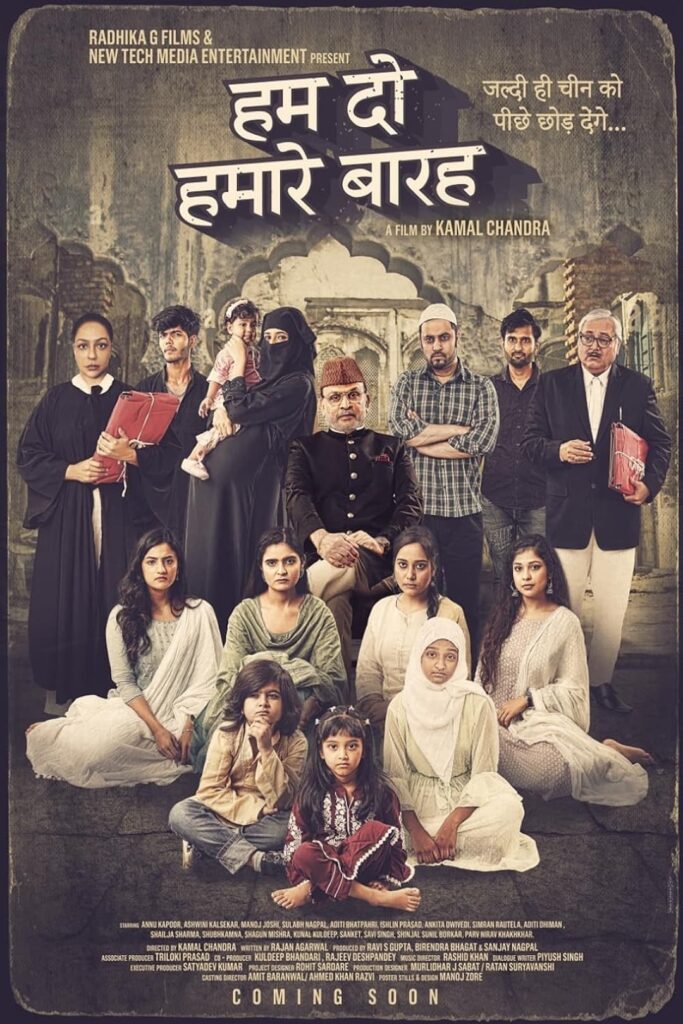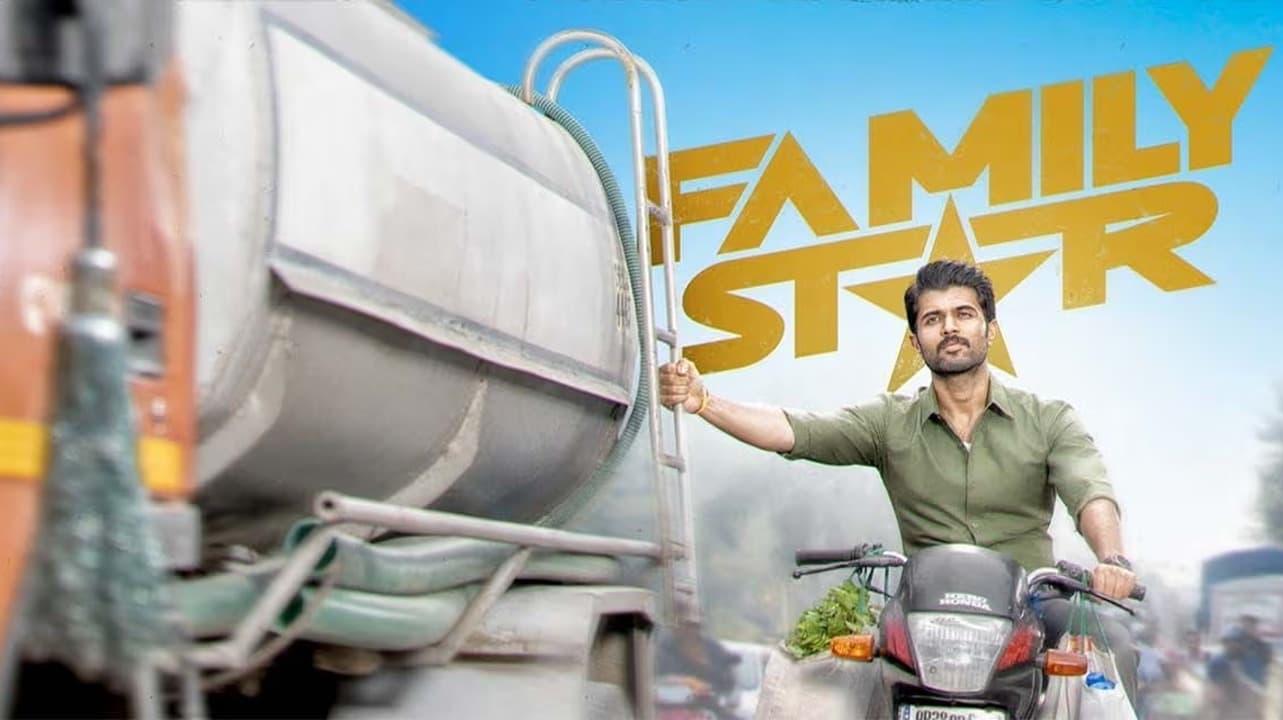His daughter protests as a religious fanatic’s patriarchal views take precedence over common sense, reason, and modernism.
The story of 60-year-old Manzoor Ali Khan Sanjari (Annu Kapoor), who lost a wife in delivery, is told in Hamare Baarah, which is set in Lucknow. Since then, he has wed Rukhsar (Ankita Dwivedi), and he is determined to conceive his new wife for a sixth time, even though doctors have warned her that she may not survive if she bears the child. He already has eleven children, and he is not able to provide for them financially. Alfia, his daughter (Aditi Bhatpahri), makes the decision to rebel against Manzoor and ultimately files a lawsuit to force her stepmother to end the dangerous pregnancy.

Intentionally, Rajan Agarwal’s script addresses the issue of how certain of Islam’s supporters consistently misrepresent the religion out of self-interest or vested interests. It is neither anti-Muslim nor anti-Islamic. These influencers drive simple-minded Muslims away from higher education and socioeconomic advancement and push them to choose the wrong pathways (as demonstrated by a poor Muslim who loudly protests the inaccurate portrayal of his faith in a very well-planned sequence).
Visually speaking, Manoj Joshi, the attorney representing the regressive father, is a single parent of just two children. The daughter is pursuing a career in medicine, whilst the son has completed his education and is established in a foreign country.
The screenplay highlights the absurdity and injustice of a man like this supporting his client against a progressive daughter’s request for her stepmother’s safety through this precise characterisation.
However, the script becomes extremely long after the midway point, most likely to demonstrate that even someone who has been brainwashed since birth, like Manzoor, may eventually see the light. The movie ought to have concluded almost twenty minutes earlier, once Aafreen had refuted every defensive line. However, the screenwriter and director opt to include new complexities (such as the attempt to transform Rukhsar into a free-spirited woman who has affairs with other men!). The judge’s closing remarks appear to put an end to the entire narrative as well, asking Rukhsar to make the crucial choice. If that was the goal, then why was there really a case?
With the exception of the judge and the gynecologist, all of the characters in the movie are Muslims, demonstrating the large number of progressive people in the community.
The film’s central character, Annu Kapoor, is utterly believable as the ultimately amoral Manzoor. He is a qawwal who has little regard for genuine morality or compassion. He treats women like things, stifles his kids’ aspirations, and acts in a dictatorial manner overall. When he sees disobedience, he nearly seems like a predatory animal. He is amazing, to put it simply.
As the diligent attorney challenging him, Ashwini Kalsekar plays Aafreen, and she presents him with fierce opposition. The incredibly talented actress, who is most known for her comedic roles in Rohit Shetty films, once again demonstrates her remarkable versatility.
Notable performances are given by Kritika, who plays Shahnawaz’s wife, Aditi Bhatpahri, who plays Alfia, and Paritosh Tripathi. While generally solid, Rahul Bagga’s portrayal of Shoaib comes across as a little flat in certain situations involving conflict. Due to the inadequate writing of her character, Ankita Dwivedi’s portrayal of Rukhsar lacks the necessary punch. Whenever he speaks up, Udayvir Singh Yadav is a good judgment. Ishlin Prasad does well as Shaheen, however Aditi Dhiman is a little too raw as the aspiring singer Zareen. The actor portraying Aafreen’s spouse was quite boring, but I like Sharad Raj Singh’s understated portrayal of the progressive shopkeeper.
While Kamal Chandra does a respectable job directing, he ought to have given some serious consideration to rewriting the screenplay. His use of music is admirable, and his grasp of a straight, non-gimmicky narration heightens the drama. Remember that the director is the one who coaxes performances out of his actors after the screenplay gives the characters more nuance.
I would pay close attention to the scenes where Manzoor forces Rukhsar to sleep with him despite her illness; the rickshaw chase in which Alfia and Shoaib transport Zareen to Mumbai for the audition; Shahnawaz’s wife’s entire rebellion sequence; and, last but not least, Aafreen’s outburst against her conceited husband when he demands that she quit the case simply because hardliners target them.
The songs, which were written in different ways by Bishakh Jyoti, Annu Kapoor, and a third name I didn’t recognize, are appropriate for the movie and are utilized in the time-honored but now-disregarded manner of situational lip-synching songs.
The movie is about women’s empowerment just as much as, say, Laapataa Ladies, but the writing could have placed a lot more focus on logic because the subject matter is taken very seriously and does not involve humor or satire. Indians shouldn’t disregard this film, since Pakistan has the ability to produce films such as Khuda Kay Liye and Bol that are increasingly critical of religious fundamentalism.




